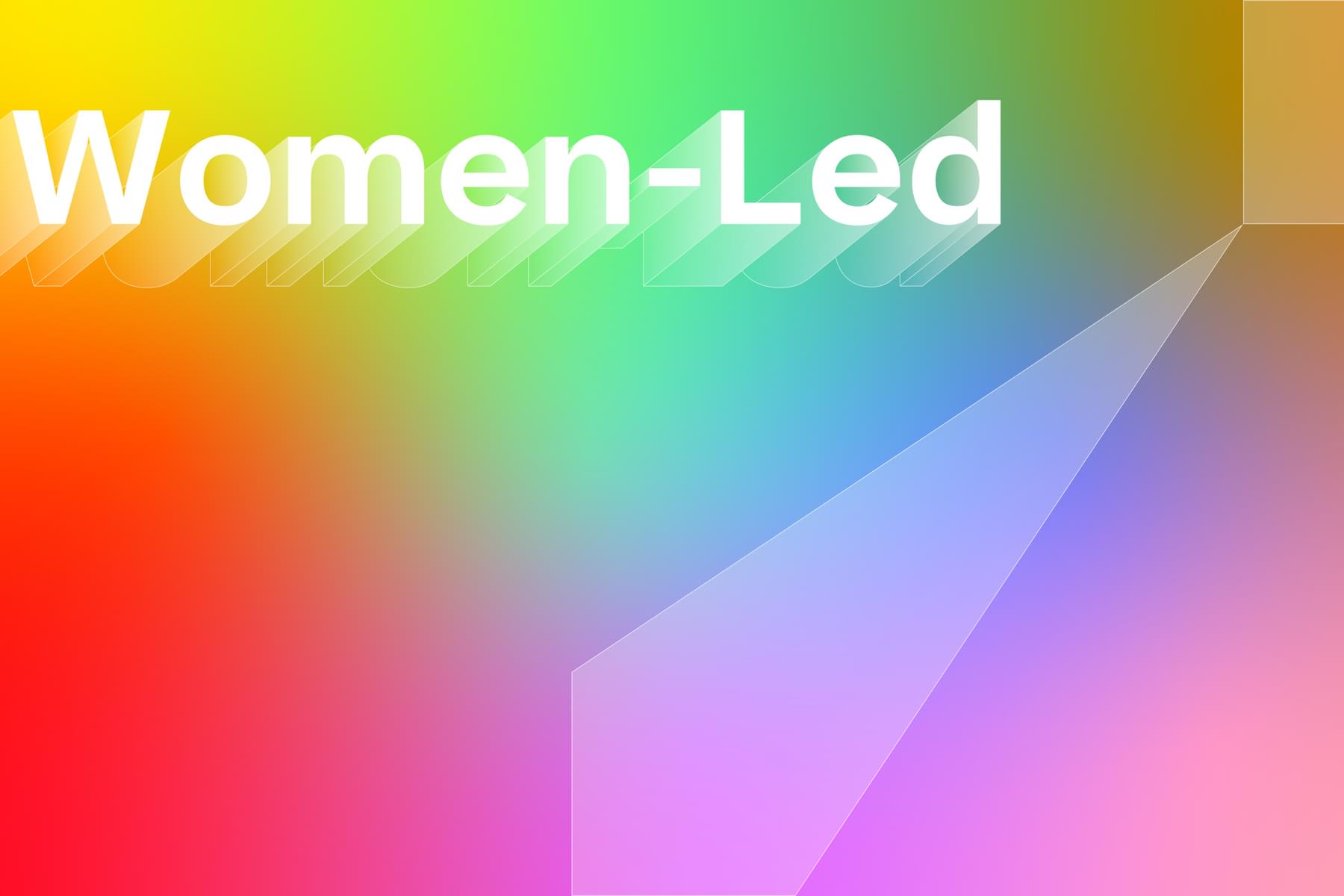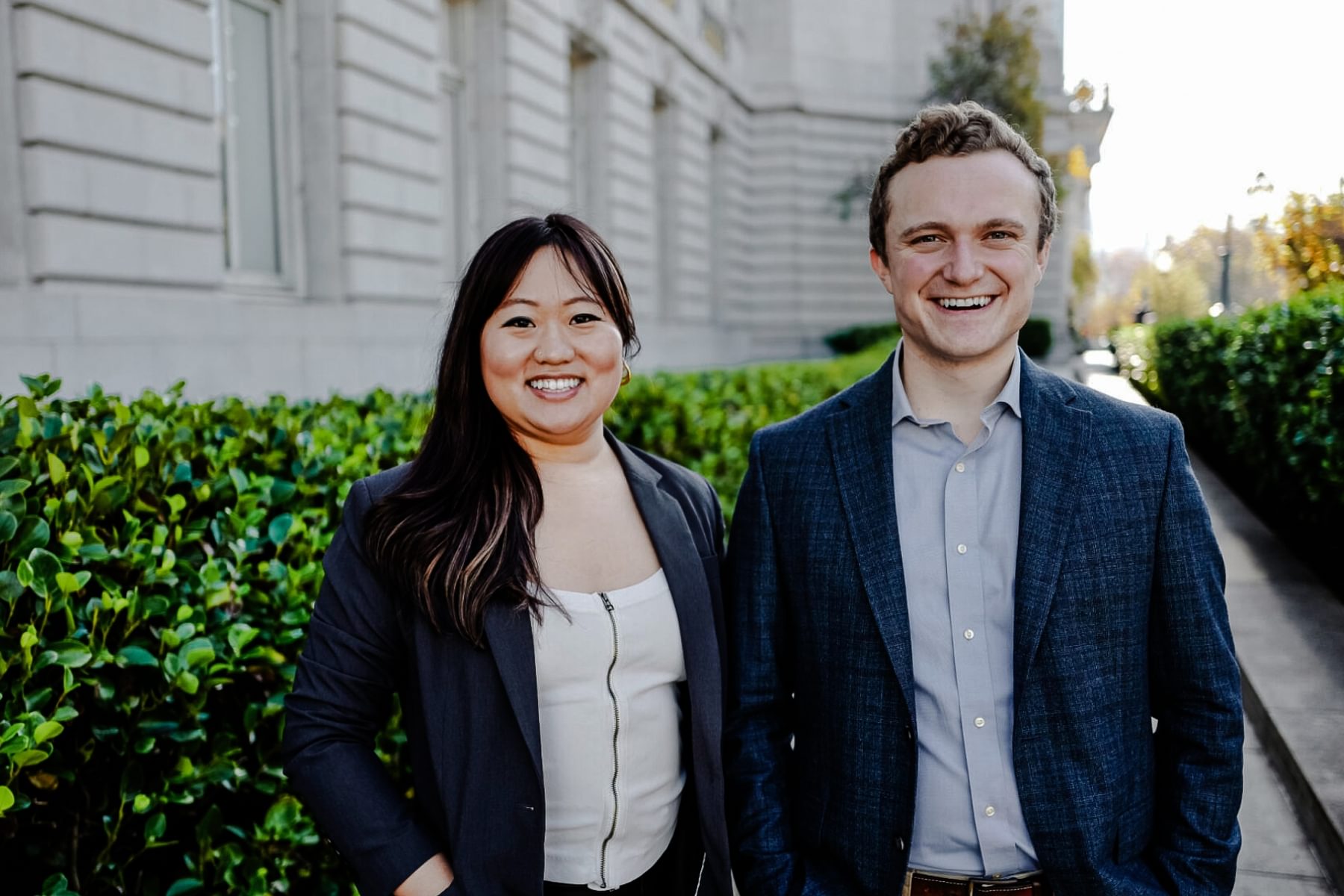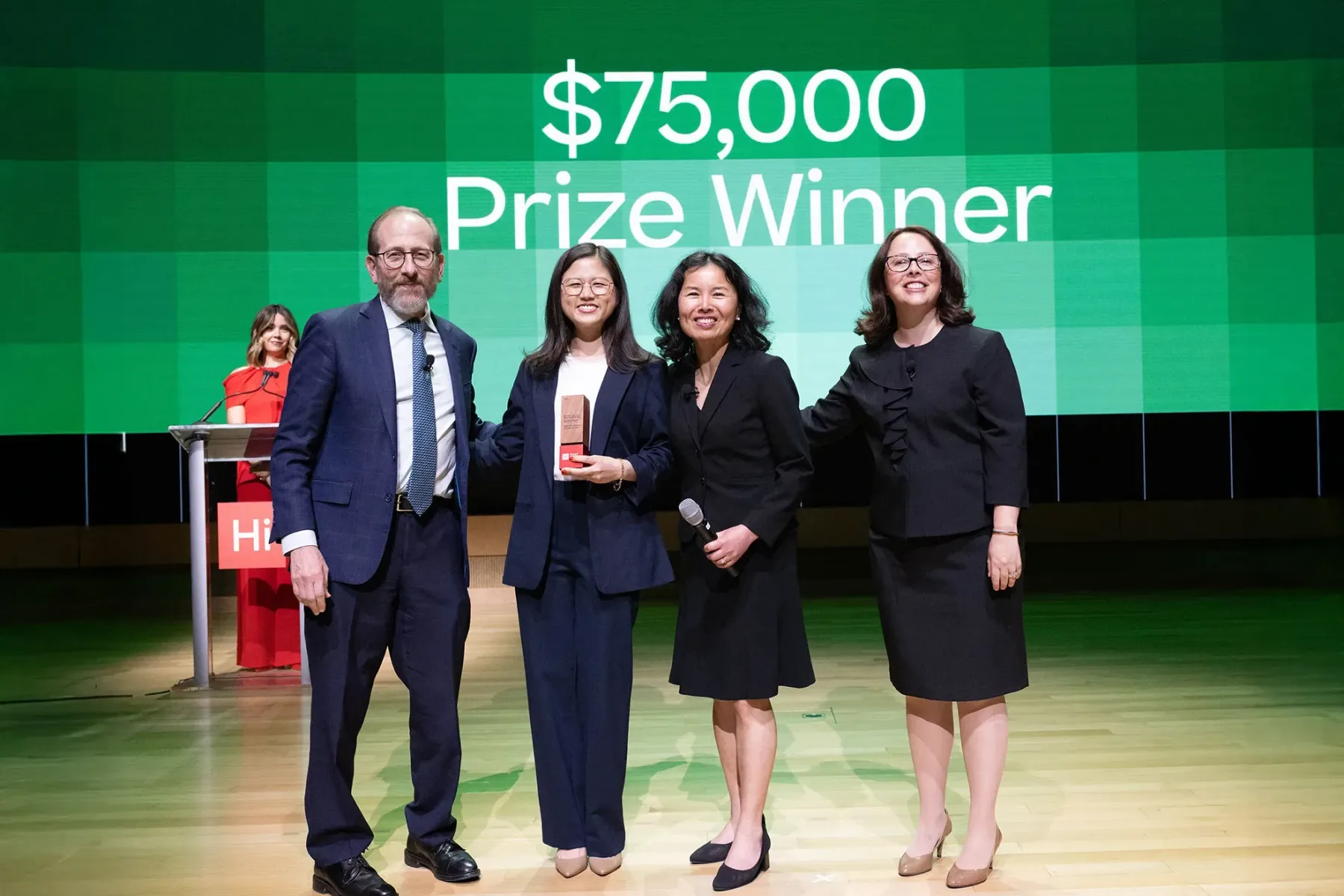From social impact to healthcare to fintech and consumer goods, women leaders notice different needs in their communities and come up with different solutions. While women entrepreneurs, particularly women of color, face unique challenges with regard to financing, they are nevertheless transforming industries by pursuing bold ideas and solving real customer problems.
Harvard Innovation Labs is proud to say that in 2019, approximately 50% of venture teams had at least one woman founder. Moreover, of the 275 startups at i-Labs that have secured venture capital funding to date, approximately 50% also had at least one woman founder.
In May 2020, we asked some of the women founders in our ecosystem to tell us how they believe women are changing the game. In July 2020, we continued to have conversations with women founders, this time about their core values and their perspectives on equity and justice. Read some answers below and learn even more about them on our social channels under the hashtag #womenledwednesdays.
Shelly Xu: Shelly Xu Design
Shelly Xu (Harvard Business School, Class of 2021) is founder of Shelly Xu Design, a fashion-tech startup that creates beautiful, accessible, zero-waste designs. In addition to her commitment to working with zero waste materials, Xu is clear that no matter how “sustainable” a piece of clothing is, “if it's not bought and worn, it's still just waste.” This is why she initiates dialogue with potential customers to offer original designs that people actually want.
Check out how the Shelly Xu Design team asks their Instagram followers to vote on which styles they’ll design and produce next. After being named a finalist in the 2020 President’s Innovation Challenge Awards, Xu went on to participate in the Harvard Innovation Labs’ Summer Venture Program. Shelly Xu Design has also received a Spark Grant from Harvard Innovation Labs and secured a new manufacturing partner to scale operations.
What is one of your team’s core values?
"Never compromise on quality or on the principle of creating zero waste products."
What kinds of conversations do you think organizations need to be having about equity and justice?
“It's not just about having more women; it's also about creating space for women to express themselves authentically. This should be the case for other underrepresented groups, too. Organizations can encourage this by designing for open dialogues and healthy debates.”

Joanna Smith: AllHere
Joanna Smith (Harvard Extension School, Class of 2016) is Founder and CEO of AllHere, an AI-powered ed tech company dedicated to mitigating chronic absenteeism in schools and improving student engagement. One of the things people tend to miss about AllHere—perhaps since Smith used to be a teacher--is that AllHere’s work is deeply research-based. Most impressive, AllHere has shifted the conversation about attendance from thinking about “students in seats for a given amount of time” to being about whether or not students are actually present and engaged in learning. This is even more critical now that so many students are attending school virtually.
After COVID19 hit, AllHere needed to change its offerings significantly. Nevertheless, AllHere had its launch webinar with approximately 4,000 educators signing on from across the U.S. They currently have a waitlist of schools and school systems who want access to AllHere’s new products which strategically match students to the research-based interventions they need to keep learning at school and reduce the strain on teachers in the process.
What is one of your team's core values?
“Always reserve the right to change your mind! We embrace a culture of experimentation. Pre-COVID, AllHere helped schools reduce chronic absence through an interventions management platform, which meant that it was a workflow tool to ensure that the right educator was doing the right intervention (usually in-person) with the right student at the right time. Then COVID hit. It’s like Mike Tyson said, “Everyone has a plan until they get punched in the mouth.” That was our punch in the mouth. Not only were students forced to go online, but face-to-face interventions weren't going to be the primary mode of supporting struggling students for some time. But early on at the i-lab I learned that the only thing that we're beholden to is producing value and outcomes for the client, in this case, schools and school systems (and kids).
For us, embracing a culture of experimentation meant that we were willing to reinvent ourselves. We did it, but in order to be able to do so, we needed to have that value that it's okay to kill your darlings or forget what you thought you knew to be responsive to what your clients actually need.”
As a woman founder, what kinds of conversations do you think organizations need to be having about equity and justice?
"I think people felt a sense of accomplishment in posting anti-racist statements on their websites, LinkedIn, and Facebook. The conversation that we need to have now is what happens after you post that statement?
DEI is not just a statement; it's a practice that extends to how you treat your employees of color and customers of color. How do you collaborate with them, support them, and give them meaningful opportunities to sit at tables that matter? As a woman of color who is also a CEO, that's the conversation I want to see. I see some collaborators make statements, but I can point to instances where those same folks have systematically excluded people with diverse backgrounds from having seats at tables of power. So you made your post... How does that translate into the lived culture and lived experience that makes that statement a reality for everyone in your organization, from soup to nuts?"

Charli Kemp & April Finlayson: The Studio
April Finlayson (Harvard Graduate School of Education, Class of 2022) and Charli Kemp (Harvard Graduate School of Education, Class of 2022) are co-founders of an innovative youth summer program that cultivates skills within students and teachers to narrow the opportunity gap. The Studio is a collaborative effort between their two organizations Change the Tune and The Leadership Academy. Change The Tune, a nonprofit organization based in Los Angeles, is dedicated to dismantling inequitable systems by providing unique and transformational learning experiences for youth. The Leadership Academy, based in The Bahamas, and its network of schools are driven by a mandate of inclusive, holistic, and experiential learning which develops the whole child. Together, the team uses creative programming leveraging universal, culturally responsive connectors like food and music to drive social impact and close the digital divide. They also run an afternoon multidisciplinary STEAM, Entrepreneurship, and Social-Emotional Learning Lab aimed to arm youth with 21st-century social, vocational, and entrepreneurial skills.
The Studio just finished the first iteration of their 2020 summer program serving over 100 students with two iterations in Los Angeles and The Bahamas receiving a high Net Promoter Score of 83. In addition to being named a runner up in the 2020 Harvard Innovation Labs President’s Innovation Challenge, The Studio also recently received a Spark Grant of $5,000 to expand their offerings. With extremely positive feedback from program participants and their facilitators who are eager to work with more students, The Studio is currently fundraising to take their work to the next level.
What is one of your team’s core values?
“Justice and Equity. There are many injustices in the education system, especially considering the grave injustices that many students are met with… particularly students who look like us.”
What kinds of conversations do you think organizations need to be having about equity and justice?
“We can forget that organizations are merely a conglomerate of people rather than simply brick and mortars. Status quo, system-driven teams sometimes make the ‘system’ the scapegoat boogeyman, not the people. But the work to be done is with the individuals in the organization. We all have a role to play, and allyship should not be taken lightly.
Teams should ask themselves:
- How willing are we to get uncomfortable and really unpack how the organization may be structured around Eurocentric practices?
- How have we been complicit in systemic racism?
- What transformations are we willing to make to build a new culture from the top? What is the makeup of our board, leadership team, and organization? What percentage of these teams are Black? What percentage are minorities?
- What has employee turnover historically looked like for Black people? Why?
- How do we deal with the immunity to change that may arise as we seek to create an anti-racist culture? What accountability measures can we build in as part of our structure?
- If we truly want to create equitable and just spaces for Black people and all people, how can we avoid common pitfalls and surface-level acts? How are we creating space in the company where Diversity, Equity, and Belonging and Corporate Social Responsibility are not afterthoughts, but actually interwoven into the fabric of who we seek to be?
- Whose voices are being authorized (and unauthorized) in conversations about equity and justice?
- What are we willing to invest in time, money, and energy in to truly transform systems? How can we support the transformation of the education system, reverse the school to prison pipeline and the digital divide? How will we intentionally design in new visions of equity pipelines that support transformation?”

Rebecca Kersch: TANG App
Rebecca Kersch, (Harvard Kennedy School, Class of 2020), founded TANG app to make paying, transactions, and sending money and airtime easy. Through TANG app’s international mobile payment app, overseas Filipino workers can send airtime and money home and receivers in the Phillippines can use the same app to e-pay, all on the same platform. The app also gives the 46 million unbanked adults in the Philippines a financial history, fulfilling one of the main functions of a bank account.
Kersch wants fellow entrepreneurs to know that finance for good exists. “It's all about the people behind the development of new financial products and ventures,” she says. At TANG app, Kersch wants teammates who prioritize their social mission of financial inclusion and won't compromise on it, regardless of how tempting the opportunity. TANG app was named a runner up in the 2020 Harvard Innovation Labs President’s Innovation Challenge, receiving $25,000 in prize money for their venture.
What is one of your team’s core values?
“Generosity: not only financial generosity, but generosity of time, attention, open-mindedness, and empathy. This is extremely important given the state of the world. We took the time to ask US-based Filipinos how the pandemic is affecting them and how TANG app can help, which is why we are pivoting our first product launch to offer users the ability to buy phone credit through the app so loved ones abroad can stay connected. We want our customers to understand that TANG app is by Filipino for Filipinos and that we are on their side, learning to understand their needs. We believe that our customers, Filipino migrant workers and their loved ones at home, sacrifice a lot and deserve extra attention, effort, and savings on the products that they use to stay connected.
Our team is spread out across countries. While we work to achieve financial inclusion for the Philippines, we also want to take care of ourselves. We check-in on each other and aim to be generous with empathy as everyone is dealing with hardship regardless of where they are.”
What kinds of conversations do you think organizations need to be having about equity and justice?
“Just start by having one conversation. Some good conversations are happening, but a lot of organizations avoid tough conversations by mentioning initiatives they are doing. What is not happening systematically is every person having a conversation about equity and justice. We all have deep entrenched biases; changes to the system will not happen until we acknowledge this. We can reflect with questions like, Why are the places I seem to be in not diverse? What has been my role? Why haven't I ever spoken up when I have noticed that?
I wrongly thought that I could not possibly have strong biases or be racist, because as an Asian female founder, I was a part of an underrepresented community, especially in Fintech. But that's not an excuse. I have mostly been a part of privileged, predominantly white institutions, which shapes how I recruit and build my team. I need to do what I can to hire for more diversity. Understanding what my role has been, whether it’s been silence, fear, or letting my biases limit diversity in my surroundings, was an important starting point for me.
Interestingly, when I’ve said this to male founders, many have responded by saying how well they have succeeded at building diverse, equitable organizations. I would urge you to stop focusing on all the good you’ve done, and assume you’ve played a role in keeping broken systems in place. Start there, ask colleagues what you can do better, be generous in your active listening and reflect.”






